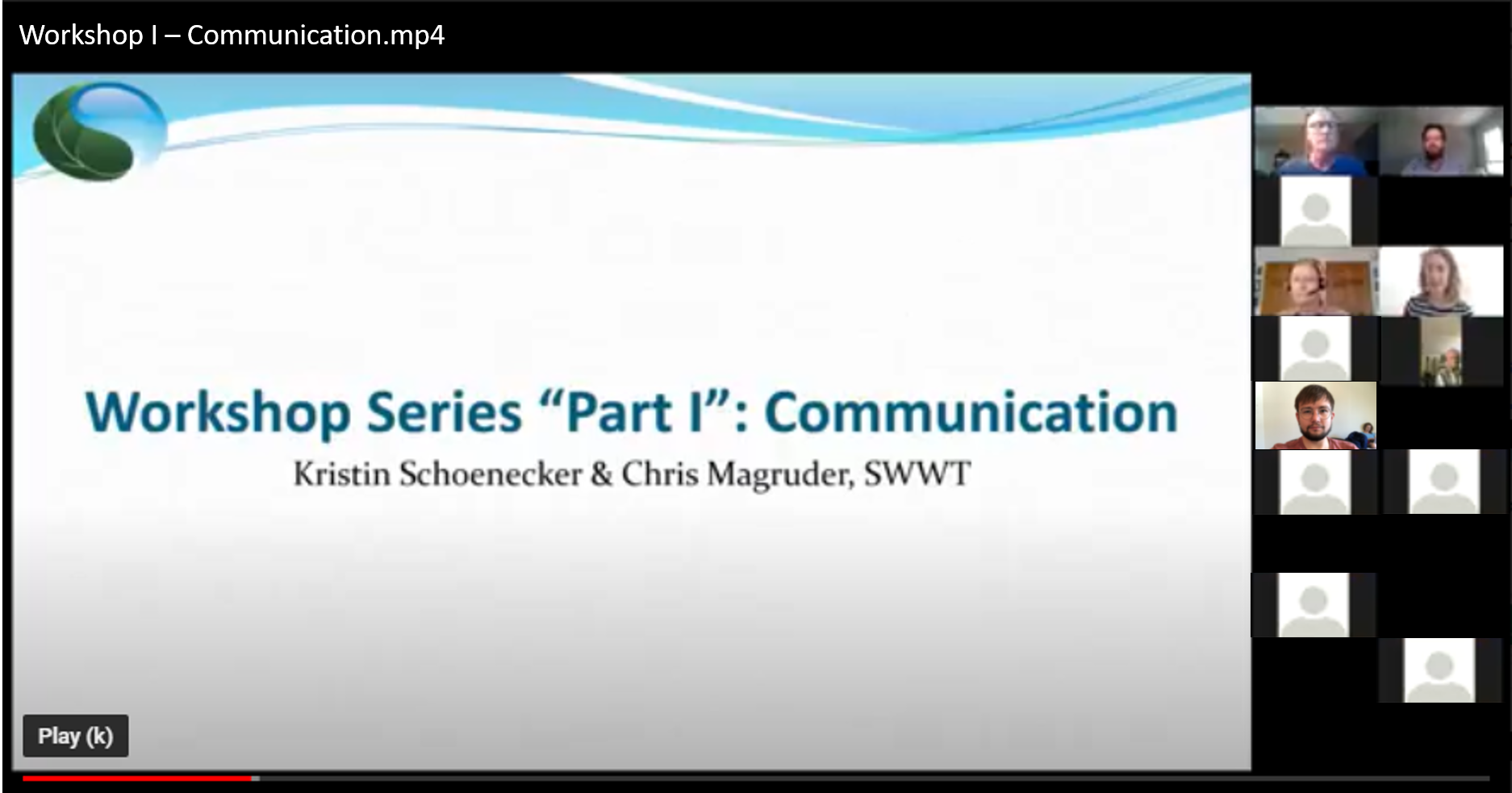Watershed Playbook in development thanks to WDNR River Planning Grant
Screen capture from the first of four virtual workshops aimed at helping to develop the Watershed Playbook.
Sweet Water is bringing together local experts that know how to turn “watershed planning” into action in a series of workshops funded by a WDNR River Planning Grant.
There are a host of plans and reports for the Greater Milwaukee Watersheds (GMW) that identify potential projects, strategies, and/or processes for improving the area’s water resources. These plans range from traditional land and water resource plans and Nine Key Element Plans to new and unconventional plans such as the Water Quality Improvement Plan. Other plans such as municipal capital improvement plans are more common but are not often thought of as a tool for watershed improvements, although this mindset should be adopted. These resources have been meticulously developed by numerous stakeholders over the past several years and the Sweet Water workshops seek to understand plans can be systematically organized to improve the pace and scale of project implementation.
The input of planning experts and project implementations alike will help develop a systematic approach to turn planning into action - this will be known as the Watershed Playbook. The four-part series of workshops that will support the development of the Watershed Playbook focus on:
Communication: What communication strategies can effectively educate appropriate stakeholders about the various watershed plans to ensure support of implementation?
Facilitation: What facilitation strategies can lead to meetings that help partners to coordinate projects and align projects with watershed plans?
Implementation: Throughout project implementation how can systematic engagement with partners transition ideas/planning into actual work?
Reporting: What reporting strategies can lead to the cultivation of lessons learned, success stories, and continued support of watershed projects?
Through engaging partners to answer these questions, we hope to develop a Watershed Playbook that is supported by those we will work with in plan implementation. The first virtual workshop on communication was held on Wednesday, July 22nd. The remaining workshops will be held in the ensuing months before the end of 2020. If you are interested in joining in on these conversations, please contact Kristin Schoenecker, Watershed Coordination Manager, at kristin@swwtwater.org.

